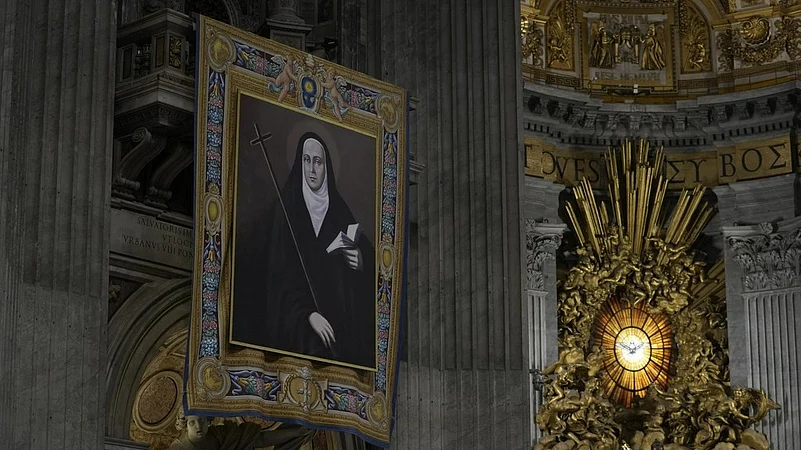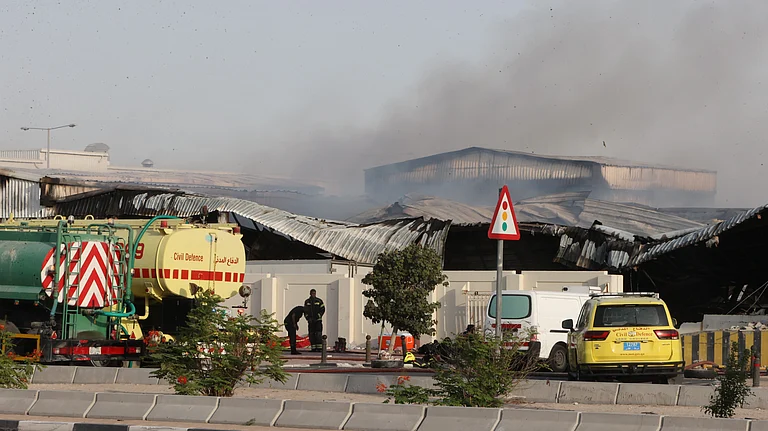Thousands of Argentines flocked to Rome on Sunday, their hearts brimming with pride and faith, as Pope Francis presided over the canonization of Mama Antula, the nation's first female saint. The ceremony, held in the grandeur of St. Peter's Basilica, witnessed a historic moment of unity and reconciliation, not just for the country but also between the Pope and Argentina's newly elected President, Javier Milei.
Their relationship started on a contentious note. During his campaign, Milei, a self-described "anarcho-capitalist," had famously labeled the Pope an "imbecile" for advocating for social justice. Yet, in the hallowed halls of the basilica, amidst the solemnity of the occasion, all animosity seemed to melt away. As the service concluded, Milei, seated close to the altar, surprised everyone by enveloping the Pope in a warm embrace. The moment, captured by countless cameras, instantly became a symbol of hope and forgiveness.

Mama Antula, born María Antonia de Paz y Figueroa, was a remarkable woman who defied societal norms in the 18th century. Leaving behind a life of privilege, she dedicated herself to spreading the teachings of St. Ignatius Loyola across Argentina, even after the Jesuits were expelled from Spanish colonies. Her unwavering faith and commitment to serving the poor resonated deeply with Argentines, making her a beloved figure long before her canonization.

Pope Francis, himself a Jesuit like Mama Antula, lauded her as a beacon of charity and urged the congregation to emulate her compassion. "How many suffering men and women do we meet on the sidewalks of our cities," he proclaimed, "wounded by fear, prejudice, and even inconsistencies from those who call themselves Christians?" His words resonated deeply with Argentina, a nation currently grappling with economic hardship and social divisions.
Mama Antula's sainthood transcends religion and politics; it marks a significant step forward for women's empowerment in Argentina. Breaking free from societal expectations that confined women to marriage or convents, she carved her own path and dedicated her life to helping others. Her elevation to sainthood now serves as a powerful reminder of the strength and independence that Argentinian women possess.

While Milei's political views sharply contrast with the Pope's emphasis on social justice, his active participation in the ceremony sparked curiosity. He attentively followed the Mass, made the sign of the cross, received communion, and knelt in prayer, hinting at a potential personal connection to the message of faith and service.
As the celebrations in Rome echoed across Argentina, one thing remained clear: Mama Antula's legacy transcends individual figures and political ideologies. Her canonization embodies the power of faith, the call for compassion, and the enduring spirit of a woman who dared to challenge the status quo.



























